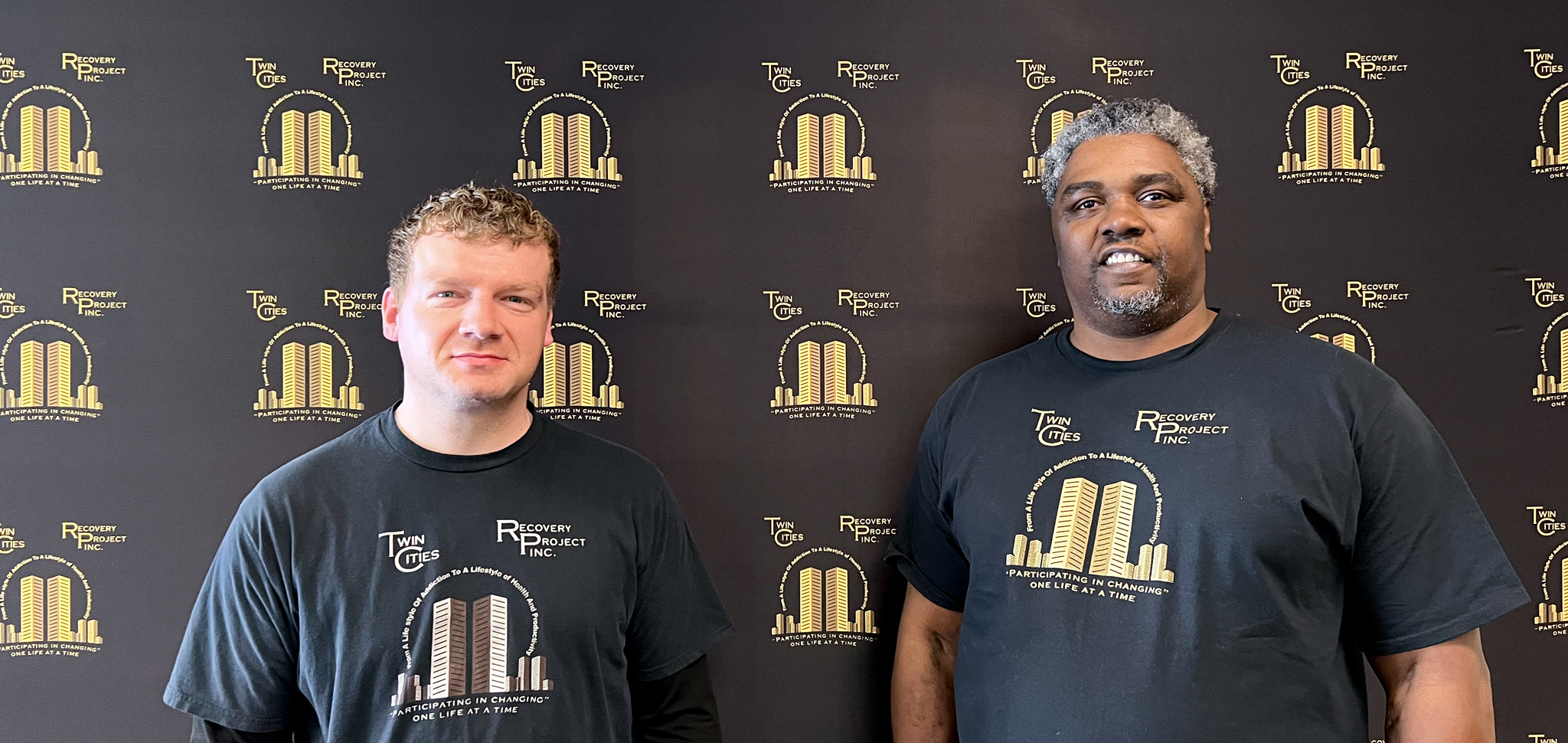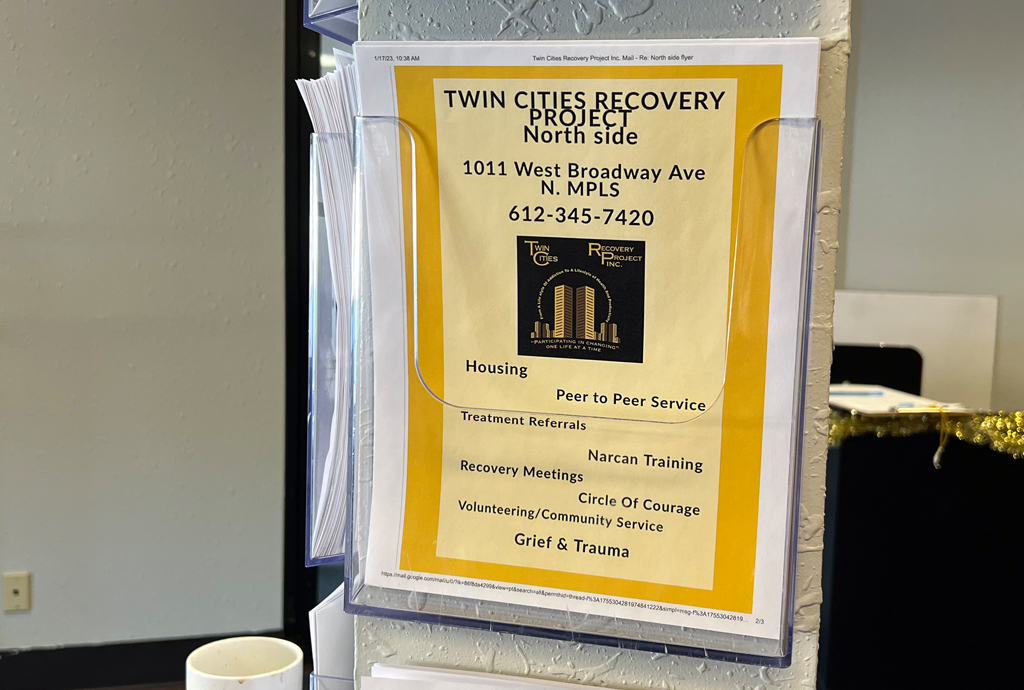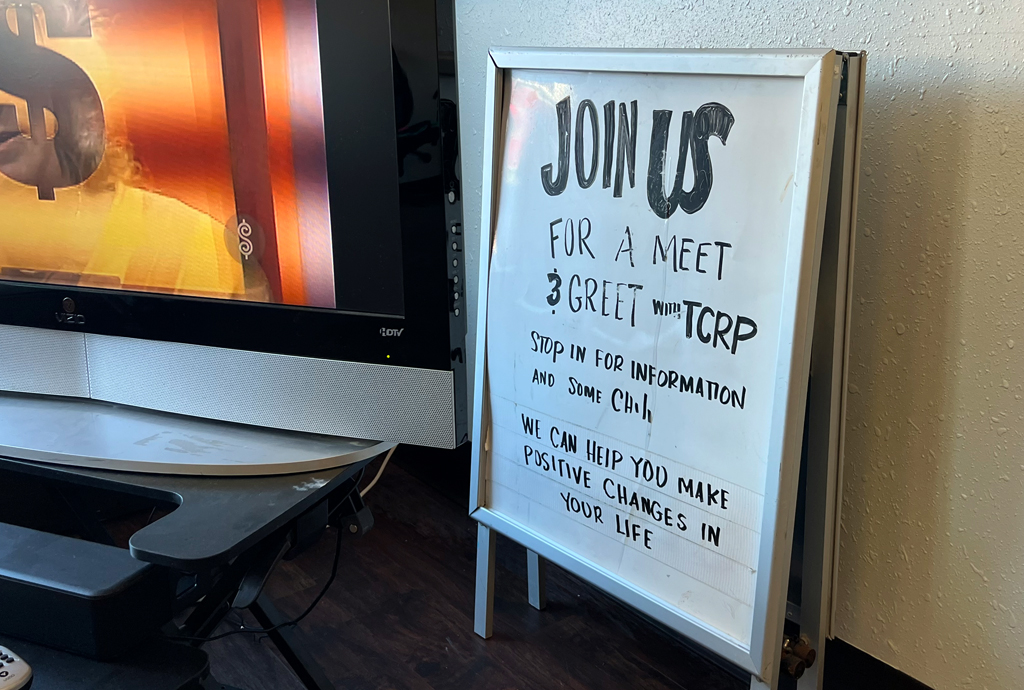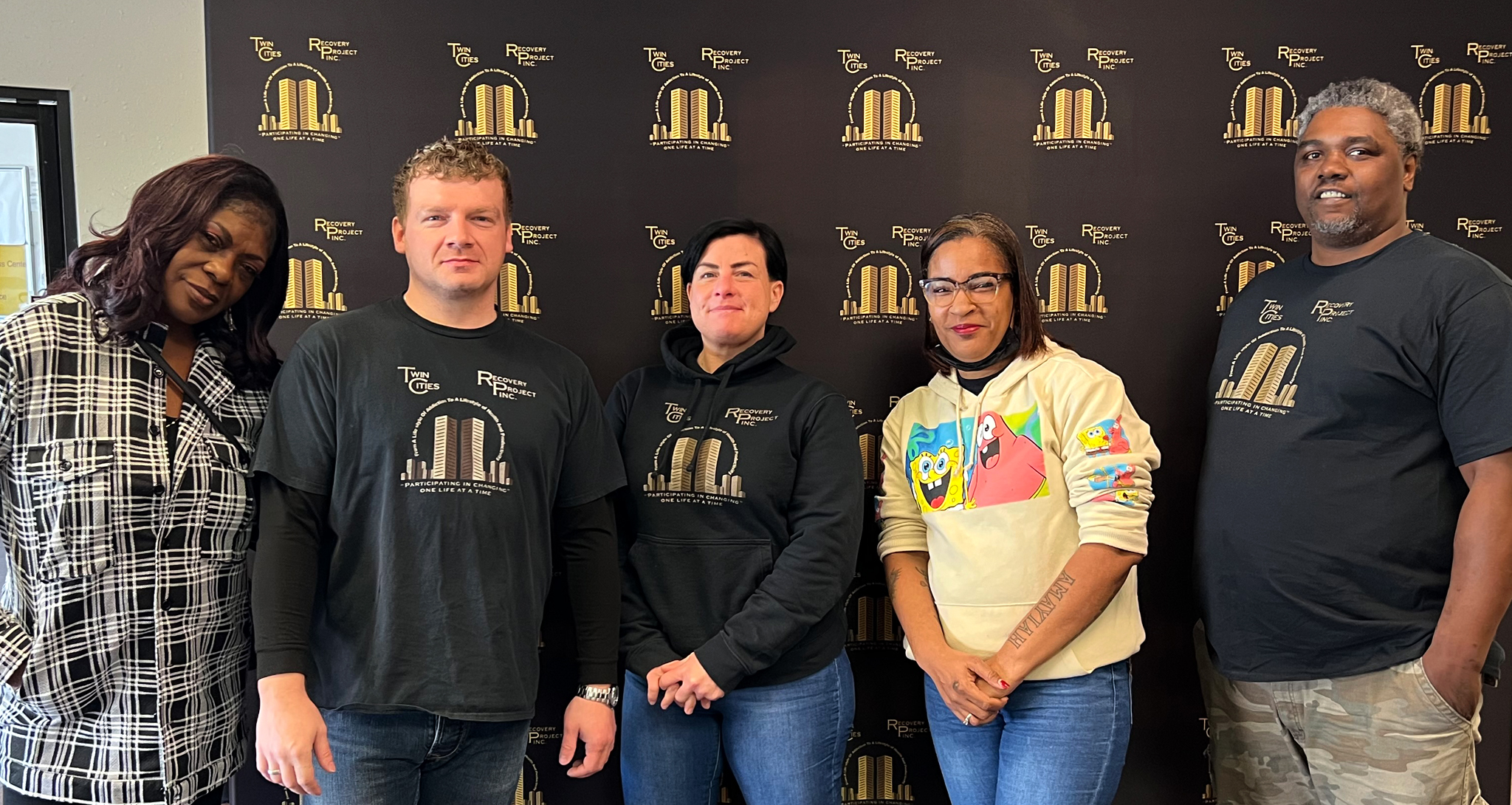

Hennepin County is working with many partners to respond to the opioid epidemic. Our approach includes prevention, response, and treatment and recovery services. Twin Cities Recovery Project (TCRP) Inc is 1 of 17 organizations we’ve contracted with to provide opioid services to groups disproportionately impacted by the epidemic.
As a result, the CHIP partners have a robust map of real life, local examples. These examples demonstrate the simple truth that communities understand their own needs and have solutions. Here are three of the 80+ success stories. View the interactive map of 2023 CHIP funded projects.
TCRP primarily serves those who have a substance use disorder or opioid use disorder, with a focus on African American communities and unsheltered people.
TCRP primarily serves those who have a substance use disorder or opioid use disorder, with a focus on African American communities and unsheltered people. Their mission is to support to people in their transition toward lifestyles of health and productivity by offering a drug free environment as well as resources to develop the whole person, such as peer support recovery services, street outreach, naloxone distribution, education, mobile peer intervention, referrals, and care coordination. This enables people to build healthy and positive relationships and to become productive members of society.
The work at TCRP is based on 4 pillars of life: Home, Health, Community, and Purpose. These pillars guide the peer recovery coaches in providing holistic services. For example, a peer recovery specialist may help someone find shelter in an apartment (home pillar) or take them to the dentist or primary care provider (health pillar).
The purpose pillar signifies direction, goals, or employment, “Whatever that may look like to you,” says Daniel Weckman, TCRP’s peer recovery specialist and outreach coordinator. Many TCRP clients have found their purpose by taking part in the nonprofit’s peer-2-peer recovery development academy and becoming a certified peer recovery specialist themselves.


To become a peer recovery specialist, one must have lived experience with substance use, whether that be personal or a family member. “Every one of our workers here is a success story,” says Weckman. “I get to walk alongside people on their recovery. Even if they fall, I am there to help them back up. That gives me incredible purpose.” The lived experiences allow peer recovery specialists to embody empathy and to meet people where they are at.
Additionally, TCRP believes that social interaction (the community pillar) plays a pivotal role in supporting ongoing recovery. But it’s often overlooked in recovery programs. TRCP weaves social interaction into its peer recovery coaching programs, grief and trauma classes, Narcotics Anonymous meetings, Friday night social club, bingo, speaker jams, and chili and chill cook outs.
The goal is to enjoy recovery. You don’t have to receive services to come in; the public is welcome. “These are opportunities to have people come in, have a safe space, and have fun in recovery,” says Weckman.
“This is a place you can go and hang out and be around people like you, who are trying to stay clean,” adds Abu As-Sidiq, a peer recovery specialist at TCRP.

As-Sidiq reflects on his own experience with TCRP programs. “I was able to have fun in recovery and not have the time to think about using.” he says. “The last 2 years have been the best years of sobriety I have had. Mr. J [Marc Johnigan, founder, president and CEO of TCRP] said give yourself a chance. I haven’t looked back since. This was the missing part for me to get long term sobriety. This place is a godsend to me.”
TCRP also takes part in outreach services on Tuesdays and Thursdays. Peer recovery specialists go to bus stops, encampments, and community centers to provide education and harm reduction materials such as clean water and syringes. The peer recovery specialists are truly meeting people where they’re at. “That’s the beautiful thing about outreach,” says As-Sidiq. TCRP also provides naloxone (Narcan) trainings for individuals and groups.
When reflecting on what makes TCRP special, Weckman says, “This organization is like a family. We are here to meet people where they are at. We are not a Monday through Friday 8 to 5 organization; we are here for people 24 hours a day.”
To learn more, Twin Cities Recovery Project, INC.
Written by: Ivy Norman